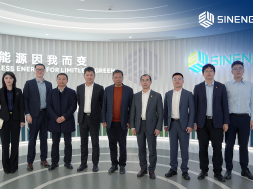
AAR Denies GST ITC on Solar Plant Installation Inputs, Raising Concerns for Renewable Sector – EQ
In Short : The AAR has ruled that no GST Input Tax Credit (ITC) is available on inputs, capital goods, or input services used for the design, engineering, and installation of solar power plants. The decision is based on the classification of the plant as immovable property, disallowing ITC under Section 17(5)(d) of the CGST Act, impacting project costs.
In Detail : The Authority for Advance Ruling (AAR) has held that no Input Tax Credit (ITC) is available under GST for inputs, capital goods, or input services used in the design, engineering, and installation of a solar power plant. This ruling has significant implications for companies involved in renewable energy infrastructure.
According to the AAR, the construction and installation of a solar power plant result in the creation of immovable property. Under the Central Goods and Services Tax (CGST) Act, specifically Section 17(5)(d), ITC is not permitted on goods or services used for the construction of immovable property when carried out on one’s own account.
The AAR reasoned that even though the plant generates electricity, which is a taxable output, the nature of the end asset — being immovable — overrides eligibility for claiming ITC on such expenditure. This aligns with previous decisions where similar infrastructure projects were denied ITC due to the immovable nature of the final structure.
The ruling also emphasized that the term “plant and machinery” under GST excludes civil structures and other immovable property. Therefore, the solar plant, though considered plant and machinery in common parlance, does not qualify as such under the narrow definition provided in the GST law.
This decision may result in higher upfront costs for solar power developers, as GST paid on critical components, services, and engineering works cannot be offset. This effectively increases the cost of setting up such renewable energy projects, possibly affecting their financial viability.
The renewable energy sector, which is heavily reliant on large capital expenditure, had hoped for a more favorable interpretation to encourage investment and growth. Denial of ITC could act as a disincentive, contrary to national policies promoting solar energy adoption.
It’s also worth noting that various state-level AARs have issued conflicting rulings on similar issues. Some authorities have allowed partial ITC depending on contract structure and the movable or immovable nature of specific components, adding to the uncertainty.
Companies may now need to revisit how their contracts are structured, such as separating supply and installation components, in order to preserve some ITC benefits. Legal recourse through High Courts or appeals before the Appellate Authority for Advance Ruling may also be pursued for relief.
The industry continues to await clarity from the Central Board of Indirect Taxes and Customs (CBIC) or a uniform interpretation by higher judicial forums to resolve the ambiguity and provide certainty to solar power developers.











